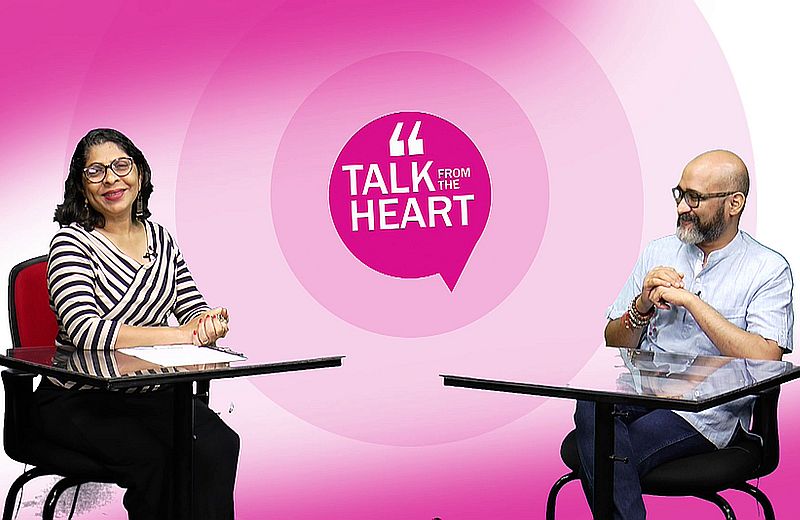
The pandemic has hit us all very hard. Cooped in our homes and cut off from family and friends has been extremely difficult. The one saving grace however has been social media(SM) that has allowed us to stay in touch with our near and near ones while keeping us abreast of the happenings around us. Not just this, social media has also been a source of entertainment and even distraction in times when everything has appeared dismal and uncertain. Having said this, there is also the fact that too much of social media use has adverse effects. To discuss this topic in detail, associate professor of Global Mental Health, London School of Hygiene and Tropical Medicine, Dr Abhijit Nadkarni was invited as a guest on The Navhind Times, Talk from the Heart show that aired live on Goa365 channel on Sunday, June 13.
An addictions’ psychiatrist and researcher, Nadkarni first acknowledged the important role of SM in our lives and then highlighted the adverse effects of over use or addiction to SM. “There are innumerable benefits of SM, in fact this programme which is live is also being streamed on SM. However like everything there are is also a downside to it. Internet or SM addiction can take over your life and this is only the tip of the iceberg as there are many other negative consequences as well,” he said. He then explained the two principal areas that are adversely affected due to SM, namely sleep and mental health. He elaborated how the quality and quantity of sleep get affected due to use of SM just before bed. “Many people use SM before going to bed and this influences the amount of sleep they get as well as being on a device that stimulates your brain with its bright light; the quality of sleep too is compromised which in turn has a knock-on effect on the rest of the day,” he elaborated.
The other insidious and not very visible effect that he spoke about was on mental health which he said was due to comparing one’s life with the highlight reels of the lives of others. “This can lead to a number of problems and some of the most common ones are anxiety and depression which arise due to unrestricted and often unrealistic comparison,” he stated.
With social currency gaining great importance in today’s world, Nadkarni discussed the why and how of this influence currency. “On digital platforms like Instagram or Twitter, the likes, shares and positive comments on the matter we post give us a lot of satisfaction. This means that we are basically putting our self-worth or self-satisfaction into the hands of others,” he explained. “Feeling good or happy then is not up to us but depends on others and they have control over how we feel.” Giving various relevant examples he illustrated how this one most common effect could be extremely harmful.
Cyber bullying was another area Nadkarni spoke about at length and said, “Even though bullying was happening before SM, what is different now is that you cannot get away from it. As you are on SM all the time, you cannot just walk away from it and it is out there for everyone to see and even add to it.” He also explained how anonymity allows the bully to continue bullying and in some cases become even more aggressive. “Cyber bullying is ubiquitous and does not respect the boundary of place, time, age or other factors.”
Highlighting the important role of parents and teachers in curbing the ill-effects of SM, he said, “Parents and teachers should have the trust of their children and wards such that their children can approach them when there is a problem. Becoming an expert in the field of SM for parents and teachers is not always possible of course but being there to guide and counsel them is crucial.” Communication between children/youngsters with their parents or other adults, he stressed is absolutely imperative.
Conversations however are not always easy with youngsters who prefer their phones and the digital arena for communication. When asked the reason behind this inclination, he answered, “Conversations or face to face communication require focus and effort, not just physical but psychological and cognitive as well. Also if you get bored with what is going on, you cannot switch to another page or app like you do when you are on a phone. The ease of use too is another feature.”
Many other relevant topics were discussed and tips were given by Nadkarni how to combat the social dilemma.



